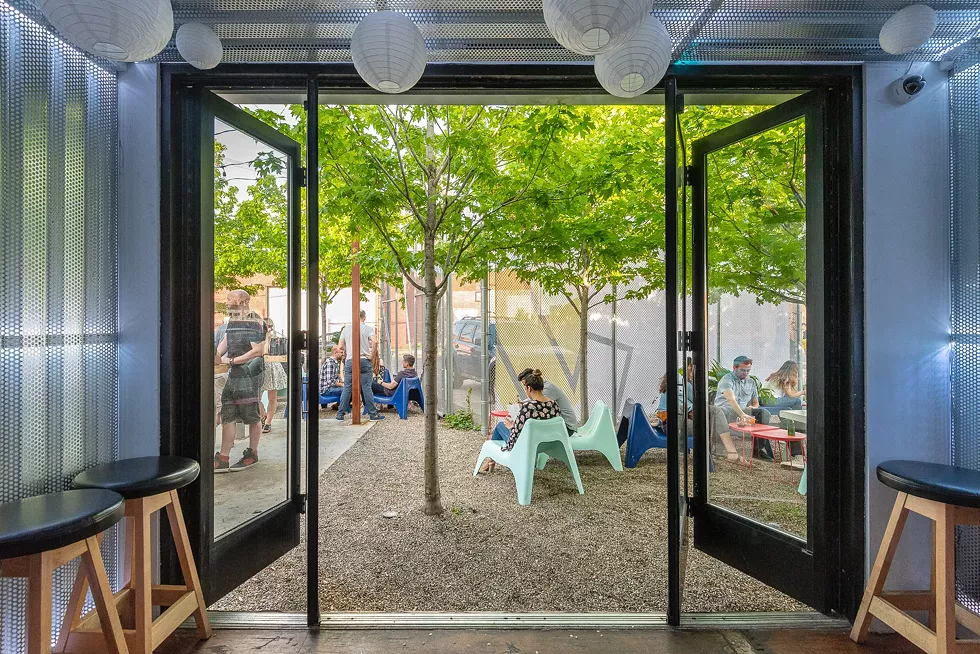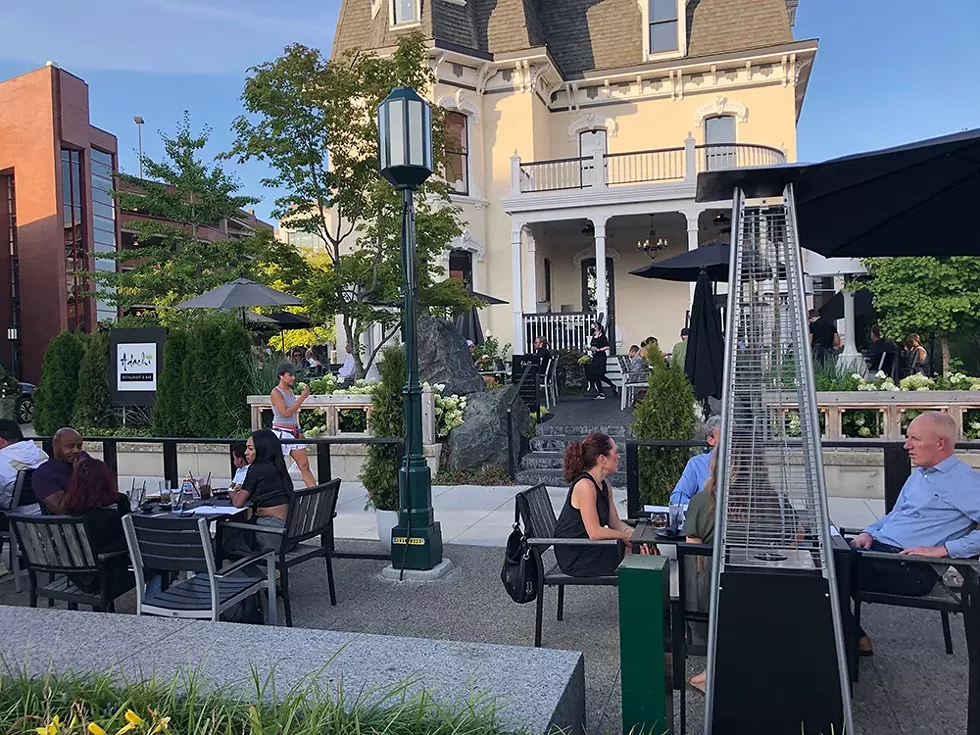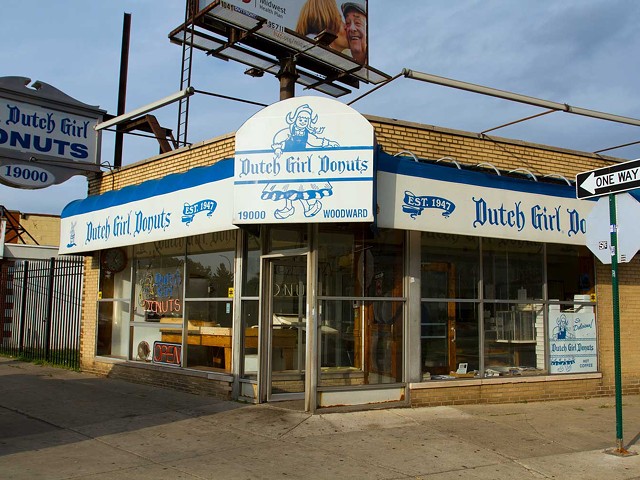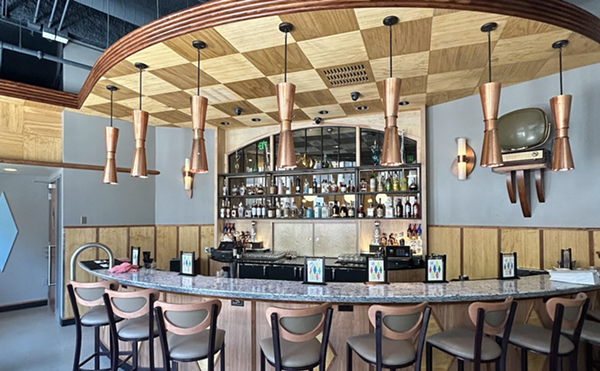
In early June, Michigan partially lifted the lockdown that was in place since the coronavirus pandemic hit in March, and restaurants began to chart a path forward.
At Birmingham's Adachi, business boomed on an expanded patio while large parties dined inside, but the profits-over-precaution approach may have eventually ignited a COVID-19 outbreak among its servers.
At Detroit's newly opened Magnet, a more cautious plan wasn't without consequence; opting not to reopen the dining room contributed to the restaurant's permanent closure.
Meanwhile, Takoi chef-owner Brad Greenhill forged a middle ground that has the Corktown favorite "treading water," but patio season's end will force a change in the equation.
As the pandemic stretches into its sixth month, the three eateries' stories are emblematic of the nearly impossible situation facing the state's restaurant owners and employees. They say the federal government's flawed Paycheck Protection Plan "bailout" has failed the industry because its design pits owners' and staff's financial interests against the health of employees and diners.
Either approach can come with a steep cost, and finding a balance is a tricky and difficult act, says Jessie Nigl, a former manager at Magnet.
"The way the PPP loan is offered doesn't really support small restaurants that want to operate in a safe way and under the capacity limitations through the pandemic," she tells Metro Times. "The only thing you can do is scale back to something that's dependable and consistently safe."
But that's not how some eateries are doing it. In late July, WDIV-TV held up Adachi as an example of a restaurant that was responsibly reopening by requiring its guests and employees to wear masks during the pandemic. The upscale sushi spot had expanded its patio seating to boost business, and servers reportedly have been pulling in up to $2,000 per week.
But the profit-driven approach would eventually blow up in the owners' faces. By late August, a COVID-19 outbreak had sickened at least six front-of-house employees, and two more staff members were exhibiting symptoms. Two former employees have been preparing complaints over unsafe work conditions to be filed with the National Labor Relations Board.
Former employees charge that — contrary to what management had told WDIV — the restaurant hadn't been regularly requiring guests or staff to wear masks, or regularly enforcing indoor capacity limits and other COVID-19 safety guidelines.
While Adachi's owners may have found a way to profit during the pandemic, its employees — and possibly its guests — paid with their health. A former employee who quit in June called the restaurant's approach "mega sketchy."
"No one was wearing masks — or they were wearing them under their noses — and a lot of guests refused to wear masks, so it was just ridiculous," said the employee, who didn't provide their name for fear of retaliation. "I said, 'You know, I can't do this. This is too sketchy.'"
Management has denied any wrongdoing. In a statement to Metro Times, it noted that Gov. Gretchen Whitmer's mask mandate only went into effect in mid-July, so the restaurant was following the law when it didn't require masks before then. Management also highlighted a range of safety measures it has recently implemented, ranging from the installation of plexiglass at the sushi bar to daily temperature checks for staff.
'Dinner is supposed to be fun'
In Detroit, there's a much different story at Takoi and Magnet, both of which were until recently co-owned by Greenhill until the financial strain of the pandemic caused the dissolution of the Top Young Hospitality group. While the restaurants usually employ over 70 people, Greenhill in late August had scaled down to a skeleton crew of about eight at Takoi. Its dining room isn't open, and those eating on the patio order at a carryout window, minimizing contact among customers and staff.
Magnet, meanwhile, temporarily closed earlier in the summer, partly because ownership had decided against reopening the dining room, and carryout numbers couldn't support the operation. Then, last week, Greenhill and former business partner Philip Kafka announced Magnet's permanent closure.
The decision not to put employees and guests at risk may have prevented an outbreak at the two restaurants. But Greenhill still paid a price with Magnet.
"We're just trying to make pragmatic business decisions and taking into account the safety and health of our staff and guests as much as possible," Greenhill tells Metro Times. "The number one thing is the health and safety of staff and guests."
Though Greenhill describes some of his staff as "trepidatious" about returning, other issues also factored into Magnet's closure. The Core City restaurant had only opened late last year and wasn't yet on firm footing — unlike Takoi, which has held onto buzz since opening as a brick-and-mortar in 2016. Scaling down to one operation instead of two during a pandemic also made more sense; Greenhill says he feared that Magnet's failure could have dragged down both restaurants, had he continued with two shops.
Additional factors also contributed to opting against offering indoor seating. Dining at Takoi is designed to be a stylish experience, with a darkly lit lounge feel. It's difficult to maintain that vibe with plexiglass, masks, and everything else that comes with running a safe dining room during a pandemic.
"It doesn't feel the same," Greenhill says. "I don't want to be reminded that we're living in the Twilight Zone when I'm eating indoors. To me, going out to dinner is supposed to be fun and an escape."
For the staff that remains at Takoi, Greenhill seems to have figured out an equitable approach. He pays everyone on staff at least $10 per hour, and tips are pooled and shared across the house. That means everyone on staff is clearing $18 an hour, and some with more seniority or in management are earning up to $28 per hour, Greenhill says.
"The back of house notoriously makes a lot less, but in Pandemic World, the back of the house is doing most of the work, so it's a way to sort of take that money and divvy it up a little more equitably," he says.
For now, Takoi seems to be a good example of a restaurant safely operating while staying afloat. However, cold weather isn't far off, and patio season's end will force Greenhill to consider how to "safely and effectively operate Takoi at half capacity."
"You have to re-evaluate all the time," he adds.
'What choice do I have?'
Instead of a bailout that kept people safe, the PPP's design requires restaurants to put staff back to work. Restaurants can't operate at more than 50-percent capacity, but they have to use 75 percent of the PPP money on payroll. The numbers don't add up, Nigl says.
"Essentially, that makes it so restaurants are having to operate at potentially unsafe capacity because they need to meet those numbers and bring in more staff than is willing to come back," she says.
Over 4,000 restaurants in Michigan received the loan that can be converted into a grant if its terms are met, according to the U.S. Small Business Administration. It's unclear how many returned the money without using it, but many restaurateurs said taking it didn't make sense because the terms were impossible to meet.
The coronavirus bailout should have been more tailored to specific industries affected by it, Greenhill says.
"The government attempted a one-size-fits-all solution, and it doesn't work for restaurants," he adds.
Meanwhile, those employees who refuse to return to work can become ineligible for unemployment benefits. In short, restaurant workers must decide between their financial and physical health.
"Most people are like, 'What choice do I have? If I refuse work, then I get cut off [from] unemployment — so here we are," Nigl says.
Moreover, the government seems to have ignored a fundamental issue in its haste to coerce the industry back to work — people have to take their masks off to eat and drink, which creates a much more dangerous environment than at other businesses.
The potential for an outbreak like that at Adachi is much greater at a restaurant than at other businesses.
"It's impossible to provide full protection for employees that every other industry has — banks, grocery stores, and other sectors of the economy can operate in a safer fashion and offer a higher level of protection," Nigl says. "The nature of this business does not allow it to be [as] safe as others."
So many restaurants, so little time. Sign up for our weekly food newsletter delivered every Friday morning for the latest Detroit dining news.







